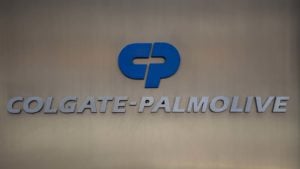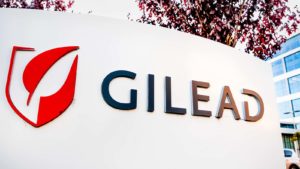Mainly, that’s because investors are already walking on eggshells. People are now looking toward any bit of bad news as an excuse to dump out of equities. Imagine watching a horror film. Throughout your typical scream fest, the audience is treated to fake outs, such as a cat jumping out of a closet. But such tactics only prime the audience to expect the real scare, which could materialize at any moment.
In other words, investors – like horror film watchers – are jumpy. To protect yourself during these unusual times, consider the below trusted defensive stocks.
Campbell Soup (CPB)

A manufacturer of packaged foods, particularly soups, snacks and beverages, Campbell Soup (NYSE:CPB) on paper makes for one of the top defensive stocks to consider. After all, we’re humans – we all have to eat. Not only that, economic challenges may see households forego eating out at restaurants and picking up more items at the grocery store. That should benefit CPB stock.
To be sure, analysts aren’t exactly thrilled with the idea. However, the fact of the matter is that Campbell consistently delivers the goods. For example, in the past year since the second quarter, the company posted an average earnings per share of 74 cents. This figure beat the consensus view of 71 cents.
Like any other solid play among defensive stocks, Campbell offers a robust dividend yield of 3.06%. Also, the payout ratio is reasonable at just under 60%. Therefore, it should be a dependable source of income.
Overall, CPB stock trades at 1.54x trailing-year sales, which is somewhat higher than the packaged food industry’s average multiple of 1.23x. Still, analysts are looking to slow-and-steady growth over the next two years.
Consolidated Edison (ED)

One of the biggest players in the utilities game, Consolidated Edison (NYSE:ED) provides electricity, gas and steam to customers in New York City and surrounding areas. Fundamentally, ConEd benefits from the advantage of its natural monopoly. Not just anyone can become a utility: there are regulations and other significant barriers to entry. Therefore, ED stock is essentially entrenched.
That entrenchment makes the utility a viable idea for defensive stocks. Another factor to consider is the consistency of its financial performances. In the past year since Q2, the company’s average EPS landed at $1.34. This figure beat the collective consensus view of $1.25, yielding an earnings surprise of 5.85%.
As for passive income, ConEd brings to the table a forward dividend yield of 3.26%. The payout ratio – while somewhat elevated – is within reasonable realms at 63.69%.
Right now, shares trade hands at 2.39x sales. That’s only a modest premium to the sector average 2.31x. However, not every utility enjoys the benefits of the lucrative New York market. Plus, analysts anticipate average top-line growth of 4.15% over the next two years. Therefore, ED represents one of the defensive stocks to consider.
Medtronic (MDT)

A manufacturer of medical devices, Medtronic (NYSE:MDT) also develops therapies for chronic diseases. Given the rising prevalence of chronic diseases (along with their economic burden), Medtronic enjoys a special place among defensive stocks. Further, society is always looking for treatments to vexing conditions due to the serious broader implications. Thus, MDT benefits from permanent relevance.
Even better, Medtronic is not what you might call a narrative queen: there are serious numbers backing up this entity. In the past year since fiscal Q4, the company delivered an average EPS of $1.30. This figure beat the consensus view of $1.25, yielding an earnings surprise of 4.48%. The company is set to release its fiscal Q1 report next week.
Right now, Medtronic offers a nice forward dividend yield of 3.45%. However, the drawback here is that the payout ratio stands at 100%. It’s something to watch.
Still, in the current year, covering experts are anticipating EPS of $5.44 on sales of $33.41 billion. That’s a decent boost from last year’s print of $5.20 on revenue of $32.36 billion.
Colgate-Palmolive (CL)

A producer of various oral and personal care products, Colgate-Palmolive (NYSE:CL) makes an excellent case for defensive stocks to buy. Fundamentally, people need to take care of themselves, irrespective of broader market conditions. Not only that, Colgate enjoys a strong brand presence, which may translate to generational loyalty.
One of the core benefits of acquiring CL stock is the predictability of the underlying business. In the past year since Q2, the company posted an average EPS of 88 cents. This figure beat the average consensus view of 83 cents, yielding an earnings surprise of 5.18%.
On the passive income front, the company isn’t exactly the most generous enterprise. However, with a dividend yield around 2%, it’s decent for what it is. Plus, the payout ratio is respectable at under 57%.
Presently, shares trade at 4.18x sales, which is somewhat pricey. In the past year, the average metric sat at 3.64x. But again, Colgate benefits from a predictable revenue stream. As well, experts are targeting average sales growth of 3.75% over the next two years.
Walmart (WMT)

A massive player in the big-box retail space, Walmart (NYSE:WMT) represents a one-stop shop for practically all consumer needs.
As with Colgate-Palmolive, the key benefit to WMT stock centers on revenue predictability. Yes, Walmart is exposed to certain discretionary sectors. However, for the most part, people shop at the big-box retailer because they have to: the stores offer food, clothing and other essentials at everyday low prices. It remains one of the pertinent businesses during the post-pandemic era.
Currently, the retailing giant offers a forward yield of 1.21%. That’s not much compared to other defensive stocks. However, the payout ratio is super low at 33.37%, thus instilling confidence in yield sustainability.
Just as importantly, analysts see current fiscal year sales hitting $676.5 billion. That’s up 13.7% from last year’s print of $594.85 billion. It’s one of the ideas to keep close tabs on.
Philip Morris (PM)

At first glance, big tobacco giant Philip Morris (NYSE:PM) might not seem like the most relevant idea for defensive stocks. After all, anti-smoking campaigns have (thankfully) been successful in reducing the incidence of underage tobacco use. But while traditional tobacco products might not be so popular right now, vaping or e-cigarettes have quickly taken over.
The evidence is in the financials. While Philip Morris doesn’t deliver resoundingly strong results, it consistently delivers the goods. In the past year since Q2, the tobacco firm posted an average EPS of $1.53. This figure pipped the expected EPS of $1.51, thus yielding a modest earnings surprise of 1.3%.
Regarding passive income, the tobacco firm is quite generous, offering a forward yield of 4.48%. However, the main concern would center on the payout ratio of 92%, which is high.
Still, analysts are looking at EPS to expand by 6.66% to $6.41 in fiscal 2024. In the following year, the bottom line could rise again to $7.05 per share. Over the next two years, experts are projecting the top line to expand by an average of 6.4% to $39.91 billion. It’s a surprisingly viable idea.
Gilead Sciences (GILD)

A specialist in the field of antiviral drugs and other biopharmaceutical products, Gilead Sciences (NASDAQ:GILD) is one of the top names in medicine. Gilead is well known for treating chronic conditions, such as HIV and hepatitis. Effectively, the company enjoys permanent relevance as addressing vexing diseases also helps ease economic burdens.
Overall, Gilead has been a strong financial performer. In the past year since Q2, the company posted an average EPS of $1.15. This figure handily beat the collective consensus view of 92 cents, thus yielding an average earnings surprise of 13.63%.
On the passive income side, Gilead is one of the more generous ideas among defensive stocks. It offers a dividend yield of 4.22%. However, the payout ratio is sky high so it’s a situation to watch closely. However, some investors might gloss over this because of the underlying valuation. GILD stock trades at 3.29x sales, lower than the biotech sector’s average multiple of 6.19x.
Even better, for fiscal 2024, analysts anticipate revenue to land at $27.64 billion. If so, that would represent a 9.1% lift from last year’s print of $25.33 billion.
On the date of publication, Josh Enomoto did not have (either directly or indirectly) any positions in the securities mentioned in this article. The opinions expressed in this article are those of the writer, subject to the InvestorPlace.com Publishing Guidelines.
On the date of publication, the responsible editor did not have (either directly or indirectly) any positions in the securities mentioned in this article.
A former senior business analyst for Sony Electronics, Josh Enomoto has helped broker major contracts with Fortune Global 500 companies. Over the past several years, he has delivered unique, critical insights for the investment markets, as well as various other industries including legal, construction management, and healthcare. Tweet him at @EnomotoMedia.
